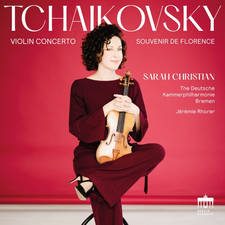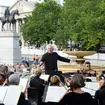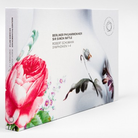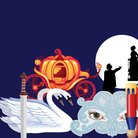Sir Simon Rattle: Master Of The Universe
Despite rumours that the Berlin Phil and Simon Rattle are living on different planets, this cosmic duo shows their trajectories are in perfect unison…
Shortly before Herbert von Karajan exchanged his god-like status for a shroud, Classic FM tried to catch the great man in rehearsal with the Berlin Philharmonic. This involved hiding behind the rear stalls of the concert hall in Lucerne, since the ailing conductor had declared a public exclusion zone and ordered security guards to enforce it. After a few bars of Brahms’s First Symphony, from what sounded like a pretty up-tight band, we were caught and evicted.
When Classic FM pitched up in Lucerne last September, the Berlin Phil was back in town with Simon Rattle. Nobody objected when we peeked through the rehearsal room door to watch the orchestra and its music director hard at work on Strauss’s Ein Heldenleben.
Rattle fired off a string of metaphors to explain interpretative points and his players responded with subtle changes of sound and attack. They also asked questions of him, shared a joke or two and appeared happy in their work. The contrast with the funereal conditions surrounding Karajan’s closed rehearsal session could scarcely have been greater; the British conductor had his musicians eating out of the palm of his baton hand.
And yet Rattle has come in for harsh criticism of late from a duo of conservative German critics. Their charges against him are that he is not Karajan, his interpretations are superficial and, as a result, his players are on the brink of mutiny. The fact that tickets for Rattle’s gigs are hotter than a World Cup quarter-final, according to his detractors, simply shows that the Berlin public lacks “expert” critical nous.
So, what exactly is the state of the conductor’s relationship with his Berliners? Rattle’s mentor and friend, conductor John Carewe, tells me that things are going very well. He adds that he would be the first to let Rattle know if they weren’t. And what of the reported tensions?
“Look,” he says, “this orchestra contains 120 raging bulls. They’re big players with big balls and big egos. And they can play. I go to Berlin five to eight times a year, to all Simon’s rehearsals and performances, and I see a great deal of mutual admiration. It’s a totally open relationship. The standard of the orchestra is incredible and the flexibility of their response to him is unbelievable.”
Photographer Peter Adamik has spent hours snapping Rattle and his band. He is sure that the bond between conductor and orchestra is still growing.
“This orchestra is always developing and has now undergone a change of generation. There are critics who miss the Brahms sound of Karajan, but they are deluded. The LSO, for example, doesn’t sound the same today as it did in the 1960s. I have the feeling that the Berlin Phil and Simon want to be about today. The Karajan era is over.”
Adamik says the orchestra’s outstanding individual players take pride in working together under Rattle. “It’s very special to see star musicians getting inside the music with Simon. He pushes hard to get what he wants, but he does it in a respectful way. Maybe the critics are jealous of this.”
When, earlier this year, I catch up with Rattle in Aix-en-Provence, he refuses to be drawn into the fuss caused by an article falsely alleging that the Berlin Phil wants a change at the top. “Mind the big ants,” he says, as we chat in the garden of his rented home. He describes the local insects as “carnivorous beyond absolute necessity.” Not unlike a few music critics, perhaps? “Giant ants, like music critics, have a job to do.”
Rattle may not want to take on his critics, but he is unrestrained in praising the Berlin Phil. “It’s a young orchestra with many players in their early twenties, and comprising 19 nationalities. There’s a level of individual skill now that there never was before, however good the orchestra used to be. That is mind-boggling.”
The partnership’s latest EMI recording, of Holst’s The Planets and new works inspired by the astrological suite, offers a snapshot of outstanding musicians at the top of their game and a conductor marshalling his troops to serve his musical vision.
The Berlin Phil twice recorded Holst’s work under Karajan, although they never played it in concert; Rattle’s account was caught live during performances earlier this year. Only a handful of his players knew the piece before the first rehearsal, offering Rattle the chance to explore familiar territory with fresh-eared companions.
“It was almost hilarious for the Brits and the Americans in the orchestra, who know the piece backwards, to see colleagues so completely unfamiliar with it,” he recalls. “At the beginning, it was a struggle. But they catch on rather fast!”
As a lad, Rattle remembers his father transmitting a burst of Mars over the phone to him. “It was Adrian Boult with the Vienna State Opera Orchestra and I was hooked.”
Years later, Rattle recorded the piece with The Philharmonia, fell out of love with it and stated that he would be happy to let it drop from his repertory. So what drew him back to The Planets?
“I had not conducted the piece since my twenties, and not heard it for 20 years. When EMI asked me to record it again, I went back to the score and was thrilled to rediscover it. Like any great piece, there are so many ways of performing it.”
He adds that the Berlin players opened new perspectives on the work and were eager to discover its background and meaning.
“I suppose an orchestra that knows Schoenberg and Scriabin better than Holst leaves a particular type of sound on this score. What’s wonderful is to be the Pied Piper, hopefully not leading everyone to destruction, but through the music. Being the Berlin Phil, they wanted to be talked to about it. In Britain and America there is often a feeling of, don’t waste time, get it together and get it right. In Germany, often the right idea or picture will send something off in a perfect way.”
By way of example, Rattle cites Jupiter, The Bringer Of Jollity and its central section, often sung with the words “I vow to thee, my country”.
“It’s effective to tell the Berlin Phil that this hymn in the middle is not just God Save The Queen, but is something of Sehnsucht, of longing. There’s also something slightly sardonic in the way that it’s quoted.”
The same movement inspired the priceless question, “Simon, what is ‘jollity’?”
“There’s not really an equivalent word in German,” says the conductor. “They want to know what the piece means; they are interested in the concepts.”
Rattle segues from the meaning of jollity to discuss what he describes as the work’s European character. The “I vow to thee, my country” tune is, he argues, far from the epitome of Englishness.
“It’s very much in inverted commas – this is the response of someone in the middle of a world war, looking back at a kind of idealised world. Holst wasn’t really British, he was very European in parentage, ancestry and outlook.”
The conductor speaks of his interest in the psychology of wartime music. Holst, he notes, began work on warlike Mars before the outbreak of hostilities in 1914, while peaceful Venus was a product of the war years.
“What people make of these is very much to do with the way an artist tries to supress the trauma,” Rattle observes. “There’s an attempt to escape and find another world. It’s a kind of desperation.”
And what of the desperation whipped up by those who argue that classical music is dead? How does the Berlin Phil’s music director, one of the most powerful figures in the classical music firmament, intend to capture new audiences?
“We are all very frightened of appearing in some sort of cosmic Pseud’s Corner,” he says, “so sometimes it’s very dangerous to say why you do what you do as a performer. One of the things I’ve realised in Berlin, though, is that you have to keep on putting it out there; you have to keep on evangelising the music. You have to take your bag of seeds, scatter them and see what grows. It’s up to performers to keep things fresh and send out the message.”
Rattle’s message to EMI was that he would only re-record The Planets if they commissioned four “asteroids”, a quartet collectively entitled Ad Astra, to accompany the Holst. The disc also includes Colin Matthews’s Pluto, created to bring Holst’s original suite in line with present knowledge of the solar system.
“The fact that Pluto was already there set me thinking. The whole tapas thing is popular in Germany, so I wanted a kind of tapas bar of composers, with small plates of music. I had no idea what would come of it, but I’m delighted with the results.”








